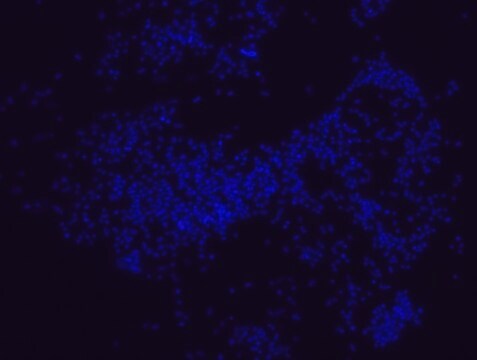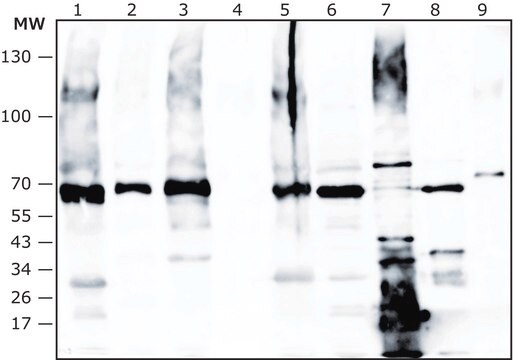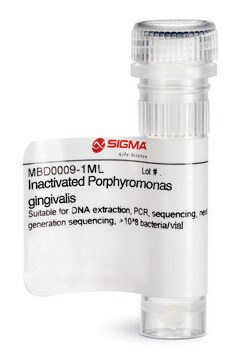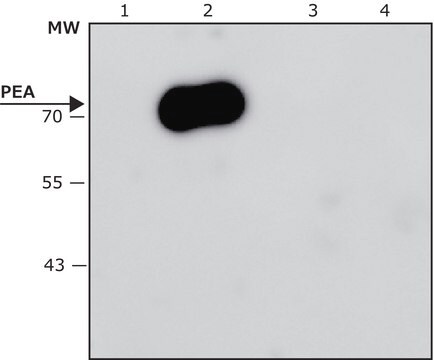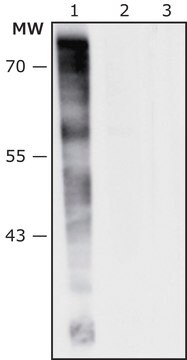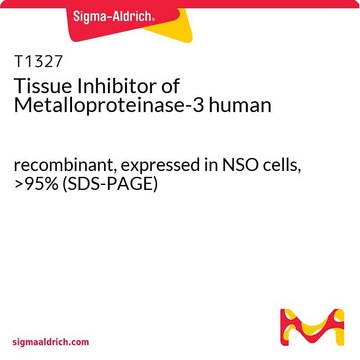SAB4200832
Anti-Porphyromonas gingivalis antibody produced in rabbit
IgG fraction of antiserum
About This Item
Productos recomendados
biological source
rabbit
antibody form
IgG fraction of antiserum
description
Research area: Microbiome
form
buffered aqueous solution
species reactivity
Porphyromonas gingivalis (Lipopolysaccharides (LPS) from whole extract)
packaging
antibody small pack of 25 μL
concentration
~1 mg/mL
technique(s)
immunoblotting: 1:50,000-1:100,000 using dead Porphyromonas gingivalis bacteria
indirect ELISA: 1:20,000-1:40,000 using Porphyromonas gingivalis LPS for coating.
shipped in
dry ice
storage temp.
−20°C
target post-translational modification
unmodified
Categorías relacionadas
General description
Application
Physical form
Other Notes
Disclaimer
Storage Class
10 - Combustible liquids
wgk_germany
WGK 1
flash_point_f
Not applicable
flash_point_c
Not applicable
Elija entre una de las versiones más recientes:
Certificados de análisis (COA)
¿No ve la versión correcta?
Si necesita una versión concreta, puede buscar un certificado específico por el número de lote.
¿Ya tiene este producto?
Encuentre la documentación para los productos que ha comprado recientemente en la Biblioteca de documentos.
Artículos
An overview of human microbiome research, workflow challenges, sequencing, library production, data analysis, and available microbiome reagents to support your research.
Global Trade Item Number
| Número de referencia del producto (SKU) | GTIN |
|---|---|
| SAB4200832-100UL | |
| SAB4200832-25UL |
Nuestro equipo de científicos tiene experiencia en todas las áreas de investigación: Ciencias de la vida, Ciencia de los materiales, Síntesis química, Cromatografía, Analítica y muchas otras.
Póngase en contacto con el Servicio técnico